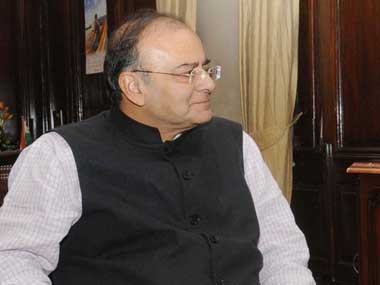India’s leaden-footed public sector banks are going to be in deeper trouble as a new competitive challenge is headed their way: payment banks. The Reserve Bank of India (RBI) has not yet given licences for payment banks, but when they come, they will disrupt the cosy banking oligopoly of public sector banks by taking away a chunk of their low-cost float funds held in current and savings accounts (CASA).[caption id=“attachment_2287344” align=“alignleft” width=“380”]  Union Finance Minister Arun Jaitley. Image courtesy PIB[/caption] Finance Minister Arun Jaitley should ask public sector banks to get a move on, or else his portfolio will house more dud public sector bank stocks than he can handle. It’s been nearly a year since the RBI announced its draft guidelines for the private sector to set up payment banks. Everybody and his aunt – from telecom companies to e-wallet operators - has applied for a licence, and most are sure to get it. For the RBI’s entry barrier is a low capital base of Rs 100 crore, which most private equity players would be happy to fund. Payment banks, as we noted earlier , are simply deposit-taking institutions with no lending operations. They will be “normal” banks as far as depositors are concerned, but account limits (as defined in the draft rules, which could change) cannot exceed Rs 1 lakh per customer. They have to keep all their money either with the RBI (as cash reserve ratio) or with the government (by investing in bonds or treasury bills with up to a year’s tenure left). They can also keep some cash in their vaults to meet expected customer requirements. Payment banks are effectively lenders to the one borrower who can’t default: the government. So they are safe for depositors. When they arrive on the scene, payment banks will take cheap deposits away from the commercial banking system, which will not only boost competition for deposits, but also slim down net interest margins. But one year after the RBI announcement, public sector bank do not seem to be in any rush to meet this competitive threat. On the other hand, the private sector bigwigs are a blur of action. While ICICI Bank has launched its own app-based e-wallet called Pockets that can be used to pay bills, buy groceries, pay friends, recharge mobiles, and buy flight and movie tickets directly through the smartphone, HDFC Bank has launched its PayZapp app for Android phones that do much the same thing. Axis Bank is also in the game It’s clear that private banks have woken up to the reality of impending competition by covering their flanks and offering their own mobile payment apps and wallets. The idea, obviously, is to keep the money with themselves and retain the low-cost floats. The evolving ecosystem for payment apps is on a fast track with customer payments to taxi, e-commerce, mobile, travel and entertainment companies shifting from cash to e-wallets. E-wallets are precursors to payment banks where customers with bank accounts or credit cards can transfer money to the wallet, which can then be used to pay for taxi rides or Flipkart purchases. E-wallet companies like PayTM, PayUMoney, Citrus and Olamoney are already being used increasingly to make seamless, cashless payments by customers using app-based services like Uber, Ola, Tabcab, and Meru, among others. Mobile companies like Airtel and Vodafone have also created e-wallets called Airtel Money and mPesa. These companies will be earning some interest from the free cash kept in these wallets. Soon, some of the e-wallets will become proper banks. Imagine what an Airtel Bank with more than 220 million customers can do with its access to their float money. E-wallets have already outpaced credit card growth. As against 20 million credit cards, Business Standard says e-wallets may cross more than 100 million by next year. Payment banks will accelerate the demise of free money with banks, not to speak of credit card margins. Many private banks are, in fact, going one step further and tying up with transaction sites (Makemytrip.com, Bookmyshow.com, etc) and offering flight, hotel and movie ticket bookings through their own websites. HDFC Bank’s SmartBuy website encourages customers to buy flight tickets using partner sites that offer fare comparisons. PayZapp can be used for payments, apart from the bank account itself. Put another way, proactive private banks are moving more than halfway to meet the impending competition from payment banks by making it possible to not only pay for transactions through e-wallets, but also buy through their websites. In a small way, private banks are effectively metamorphosing into e-marketplaces themselves, into mini-Flipkarts. The nationalised banks, on the other hand, seem to be struggling with basic issues like bad loans and lack of capital infusion by the government. Those are important issues, but any management that takes its eyes off the competition and customers is bound to pay a high price in terms of market share and profits. There is no time to lose. If the public sector banks do not act quickly, payment banks and private sector banks will take the pants off them. Mr Jaitley, tell your PSUs to move the butt. Else they will be left behind.
E-wallets are already growing fast, and when payment banks enter the picture, public sector banks will find customers moving their low-cost deposits elsewhere. They are going to face further dents to their profitability.
Advertisement
End of Article
Written by R Jagannathan
R Jagannathan is the Editor-in-Chief of Firstpost. see more


)

)
)
)
)
)
)
)
)



